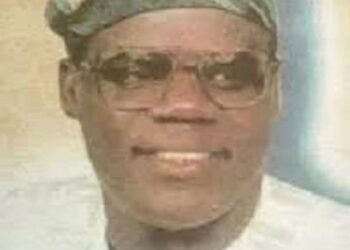Muri Ajaka remains one of those rare political figures whose presence lingers long after the noise of an electoral season has faded. In Kogi’s often-turbulent political theatre—and, increasingly, in Nigeria’s broader fiefdoms—he has carved out a curious yet compelling niche. He embodies the magnetic contradictions once associated with Muhammadu Buhari: ascetic yet attractive, understated yet mass-appealing. Like Buhari, he is embraced by the many, distrusted by the few. And, as the Social Democratic Party’s gubernatorial candidate, he rattled the complacency of those in power with a force far exceeding the modest machinery behind him.
To call his charm fleeting would be to misunderstand it entirely. Ajaka possesses a sort of low-frequency charisma—the kind that does not flash but seeps; not explosive, but adhesive. He is not the typical politician who emerges with slogans and fades with silence; rather, he appears as the progenitor of a movement. In this, he echoes Peter Obi: underestimated by elites, but gifted with a capacity to disturb political architecture in ways the establishment finds inconvenient.
Ajaka arrived without fanfare, almost as an enigma, and has remained so—growing, quietly but steadily, in stature and influence. Yet his rise was not without distortion. During the last gubernatorial contest, a stream of political hangers-on—those with weighty wallets but lightweight conviction—rushed to appropriate the Muri Movement. Their ambition was transparent: to launder their relevance in his glow. In doing so, they crowded out the genuine ideologues and creative strategists who might have shaped a more formidable, inclusive campaign. What should have been a broad-based civic surge was reduced to the appearance of an accidental elite club. It was a misfortune, one that need not have occurred.
These opportunists mistook Ajaka for a launchpad. But he, perceptive as ever, saw the masquerade for what it was. He humoured their theatrics long enough for the ballots to be cast. Once the election dust settled and their performative zeal had exhausted itself, many of these political tourists scurried toward the same APC they had vilified with missionary fervour. Their ideological elasticity raises a familiar question: how do those who campaign on grievance, factionalism, and narrow tribal fervour so easily return to the embrace of the very establishment they once condemned?
Here lies a lesson for emerging political leaders: never shrink your ambition to the cramped dimensions of tribe or creed. Such reductionism blinds one to the broader possibilities of nationhood. No single group—however vocal—can secure victory or legitimacy. Movements, the ones that endure, are built from coalitions, not enclaves.
Ajaka, to his credit, refused to be boxed into the role of a provincial champion. He maintained his breadth even when others tried to narrow him. For Murtala Yakubu Ajaka, the horizon still stretches wide. Figures like him—enigmatic, disruptive, and quietly resilient—rarely fade.
For this week, he stands as my political figure of note. A man worth musing over—fondly, and with expectation.
Fondly musing













